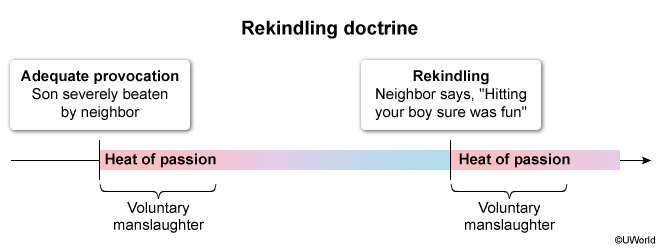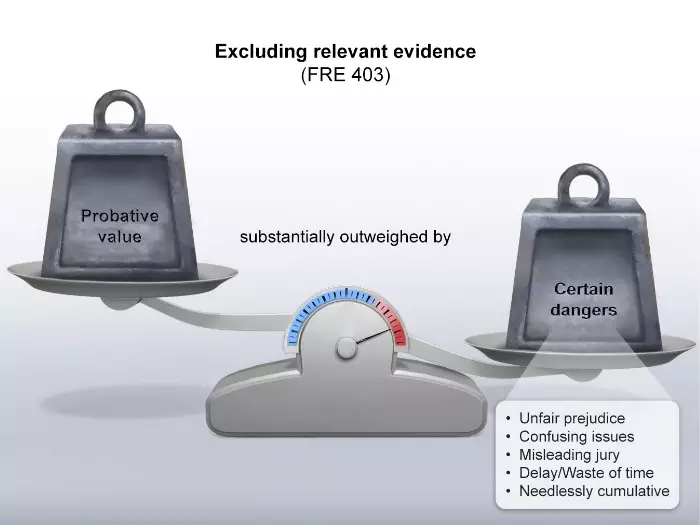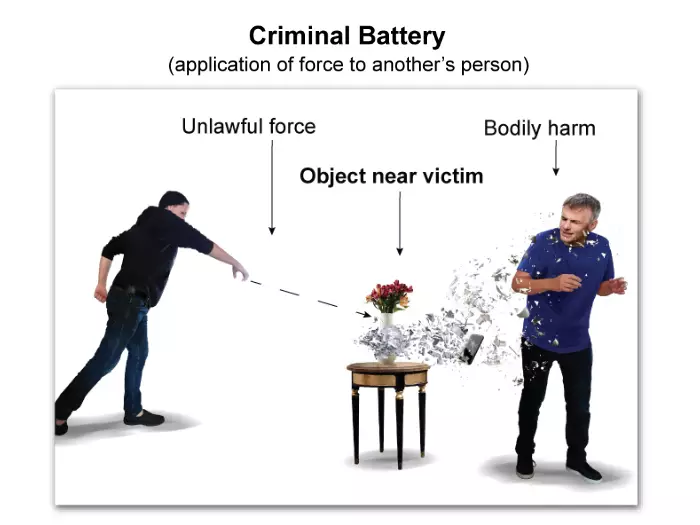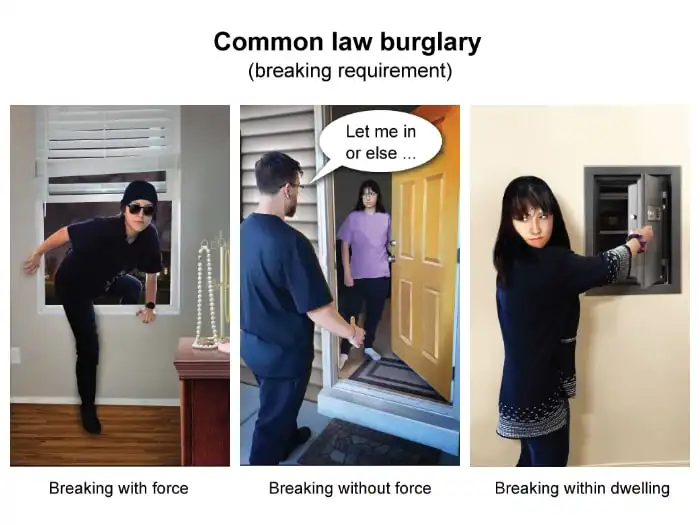Criminal Law & Procedure
Criminal Law typically covers the rights and obligations of individuals in society. Questions about this topic usually focus on the elements of specific crimes and the defenses against them. Criminal Procedure, on the other hand, typically covers the protection of a person's rights during the criminal process. MBE questions on this topic usually focus on police investigations, arrests, the filing of charges, the filing of motions, criminal trials, and the appeals process.
Of the 175 scored questions on the Multistate Bar Exam (MBE®), you can expect to see 25 on the topic of Criminal Law & Procedure. In most cases, those 25 questions are split approximately 50-50 between Criminal Law and Criminal Procedure. These two subjects are very similar, but test-takers should be aware of a couple of distinct differences.
If you want to pass the MBE, you will need a detailed understanding of these subjects.
Criminal Law & Procedure Breakdown by Topic, Weightage and Tested Questions
The Criminal Law and Procedure bar exam is separated into five categories. They are:
- Homicide
- Other crimes
- Inchoate crimes; parties
- General principles
- Constitutional protection of accused persons
The National Conference of Bar Examiners (NCBE®) weighs each of these topics differently. The current weights are as follows:
| Criminal Law & Procedure Subtopics | % Tested | No. of Questions |
|---|---|---|
| Homicide | 12.5% | 3-4 |
| Other crimes | 12.5% | 3-4 |
| Inchoate crimes; parties | 12.5% | 3-4 |
| General principles | 12.5% | 3-4 |
| Constitutional protection of accused persons | 50.0% | 12-13 |
| Total scored questions for Criminal Law & Procedure | 25 | |
As you prepare for the MBE Criminal Law and Procedure test, keep these topic weightings in mind and focus your studies accordingly. But what exactly do you need to know about each of these MBE subjects? Let’s find out!
Homicide
The Criminal Law and Procedure bar exam generally contains 3 – 4 homicide questions. To answer these questions correctly, you will need to know about:
- Intended killings
- Premeditation, deliberation
- Provocation
- Unintended killings
- Intent to injure
- Reckless and negligent killings
- Felony murder
- Misdemeanor manslaughter
The MBE usually poses homicide questions in the form of sample cases. You will need to review the details of the case and state which level of homicide the defendant has committed. We suggest paying close attention to the defendant’s mental state if you want to ace this section of the exam.
Other crimes
Homicide isn’t the only offense covered on the MBE. Test takers can also expect to face Criminal Law bar exam questions about offenses such as:
- Theft and receiving stolen goods
- Robbery
- Burglary
- Assault and battery
- Rape; statutory rape
- Kidnapping
- Arson
- Possession offenses
As with the homicide portion of the exam, questions about these other crimes are usually posed in the form of sample cases. To answer them correctly, focus on the elements of the crime. If an element is missing, the defendant cannot be convicted of the offense.
Inchoate crimes; parties
Inchoate crimes are incomplete offenses. The MBE Criminal Law and Procedure bar exam asks three or four questions about these offenses. It is recommended studying the following topics if you want to ace this portion of the test:
- Types of inchoate offenses
- Attempts
- Conspiracy
- Solicitation
- Parties to crime
When preparing to answer questions about inchoate offenses, remember the merger doctrine. It may have an impact on the crimes the defendant can be convicted of.
General principles
You should expect to find three or four questions on the general principles of criminal law on the MBE. To answer them correctly, you’ll need a detailed understanding of topics like:
- Acts and omissions
- State of mind
- Required mental state
- Strict liability
- Mistake of fact or law
- Responsibility
- Mental disorder
- Intoxication
- Causation
- Justification and excuse
- Jurisdiction
Focus on the differences between concepts such as intent and recklessness if you want to earn top marks on this section of the MBE.
Constitutional protection of accused persons
50% of the questions on the Criminal Law and Procedure test are about the constitutional protection of accused persons. As such, this topic should garner the bulk of your attention when preparing for the exam.
It’s especially important to study topics such as:
- Arrest, search and seizure
- Confessions and privilege against self-incrimination
- Lineups and other forms of identification
- Right to counsel
- Fair trial and guilty pleas
- Double jeopardy
- Cruel and unusual punishment
- Burdens of proof and persuasion
- Appeal and error
Many of the questions in this part of the exam concern the application of the Fourth, Fifth, Sixth, and Fourteenth Amendments. Review them carefully before you walk into your exam center.

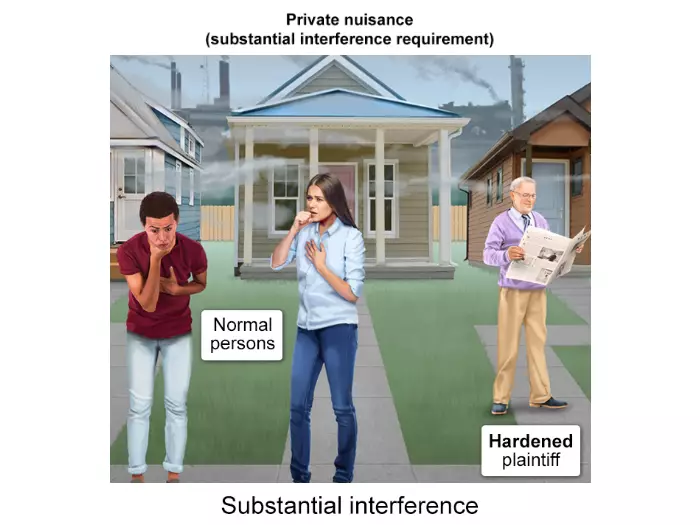
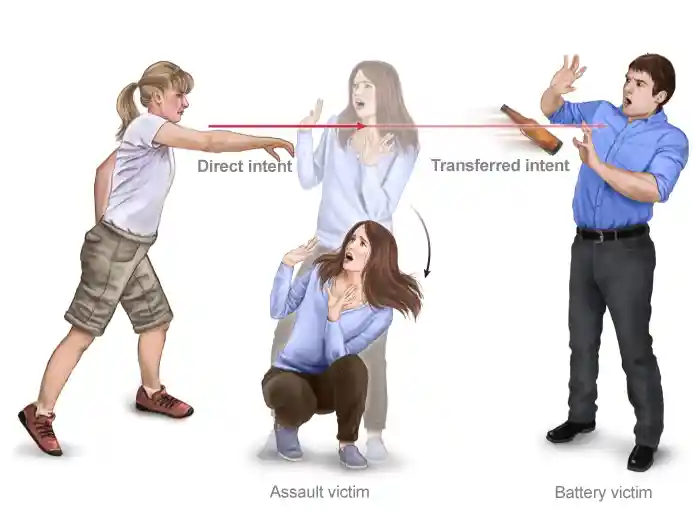
How to Study for Criminal Law and Procedure on the MBE
To study for the NCBE’s Criminal Law and Procedure bar exam, just follow these steps:
- Create a Plan: Check the bar exam dates to see how much time you have to prepare. Then, create a plan that outlines the topics you want to study each day.
- Hit the Books: There is no way around it. If you want to pass the MBE, you’ll need to open your textbooks and put in some late nights. Don’t forget to focus the bulk of your attention on the most-tested topics.
- Take Practice Exams: The best way to assess your study progress is to take regular practice tests. If your scores improve each time, you’re heading in the right direction!
Want more info about the best way to study for the MBE Criminal Law and Procedure test? Let’s dig in!
Know About Highly Tested Issues
During the first two steps of the study process, it’s crucial to understand which MBE subjects are the most likely to appear on the exam. This knowledge will help you create your plan and focus your studies.
In recent years, the most highly-tested issues have been:
- The Insanity Defense: The NCBE loves to ask questions about the M’Naghten Rule.
- Homicide: Expect several criminal law bar exam questions about the different types of homicides an individual may commit.
- The Fourth Amendment: Questions about privacy, probable cause, and the validity of warrants are common on the MBE.
- The Fifth Amendment: You should never walk into a Criminal Law and Procedure test without a thorough understanding of Miranda warnings and violations.
It is also a good idea to brush up on our Criminal Law and Procedure vocabulary before the test. Doing so will help you avoid any unnecessary confusion in the examination center.
Practice
Reviewing sample exams and answering criminal law practice questions is undoubtedly the best way to assess your study progress.
We recommend approaching each question using the following steps:
- Analyze the Crime: What offense (if any) was committed in the sample case?
- Review the Suspects: Which individuals broke the law? Did all the defendants commit the same crimes?
- Consider the Exceptions: Do any exceptions or protections exist that would prevent the state from prosecuting the suspects?
Approaching your criminal law MBE practice questions in this manner will show you what to look for in the real exam, making it possible for you to find the right answers quickly and consistently.
Criminal Law and Procedure Law Sample Questions and Answers
Wondering what criminal law MBE questions look like? Here are three samples from our UWorld MBE QBank:
A man and a woman dated for several weeks. During that time, the man repeatedly asked the woman to have sex. Each time, the woman responded that she would not have sex with the man unless they were married. One evening, the man promised the woman that they would elope the following weekend if she would agree to have sex. The woman agreed and the couple had sex. The following weekend, the man told the woman that he had no intention of eloping and only made that promise to get the woman's consent. The woman reported the man to the police, who later arrested and charged the man with rape.
Is the man guilty of rape?
- No, because fraud in factum did not negate the woman's consent.
- No, because fraud in the inducement did not negate the woman's consent.
- Yes, because the woman's consent was obtained by fraud in factum.
- Yes, because the woman's consent was obtained by fraud in the inducement.
| Consent to sexual intercourse obtained by fraud | ||
|---|---|---|
| Type of fraud | Definition | Effect |
| In factum |
|
Negates victim's consent |
| In inducement |
|
Does not negate victim's consent |
In most modern jurisdictions, rape is defined as sexual intercourse with another without that person's consent.* This means that rape did not occur if the victim consented to sexual intercourse. However, a victim's consent may be ineffective if it was obtained by fraud. There are two types of fraud:
- Fraud in factum – when consent is obtained by fraud regarding the nature of the act itself, leaving the victim unaware that he/she consented to sexual intercourse and negating the victim's consent
- Fraud in the inducement – when consent is obtained by fraud regarding what the victim knows is an act of sexual intercourse, which does not negate the victim's consent
As a result, consent obtained by fraud in factum is not a valid defense to rape, but consent obtained by fraud in the inducement is a valid defense.
Here, the man falsely promised the woman that they would elope if she agreed to have sex with him. Since the woman knew that the act to which she consented was sexual intercourse, her consent was obtained by fraud in the inducement (Choices A & C). This type of fraud did not negate the woman's consent, so the man is not guilty of rape (Choice D).
*At common law, rape was defined as (1) unlawful sexual intercourse (2) with a female who is not the defendant's wife (3) against her will by force or threat of force.
Educational objective:
Fraud in factum occurs when the fraud pertains to the nature of the act itself and negates a rape victim's consent. In contrast, fraud in the inducement occurs when fraud is used to gain consent to what the victim knows is an act of sexual intercourse and does not negate the victim's consent.
A man purchased a new rifle and wanted to try it out before bringing it on a hunting trip the following day. After leaving the gun store, the man drove to a remote part of town and stopped at a building that, by all outward appearances, had been abandoned. The man fired upon the building, using the building's boarded-up windows as targets. Unbeknownst to the man, a small group of people had taken shelter inside the building. The man ceased firing once he heard voices yelling from inside the building. However, one of the man's bullets struck and killed a woman inside the building.
The above facts were set out at trial, and the man was convicted of murder. On appeal, the man argues that the evidence was insufficient to support his conviction.
If the jurisdiction follows the common law of homicide, should the man's conviction be overturned?
- No, because the killing occurred during the commission of an inherently dangerous felony.
- No, because the man acted with negligent disregard of an obviously high risk of death by shooting at the building.
- Yes, because the man did not intend to kill the woman when he fired at the building.
- Yes, because the man was unaware of the danger posed by firing at the seemingly abandoned building.
| Homicide | ||
|---|---|---|
| Common law | Modern approach | |
| Murder | Unlawful killing committed with malice aforethought:
|
First-degree: murder committed with:
|
| Voluntary manslaughter | Intentional killing mitigated by either:
|
|
| Involuntary manslaughter | Unintentional killing either:
|
|
| MPC = Model Penal Code. | ||
A conviction should be overturned if the evidence was insufficient to support a guilty verdict because no reasonable fact finder could find proof of every element of the crime beyond a reasonable doubt. Common-law murder requires proof that the defendant unlawfully killed another while acting with malice aforethought—ie:
- intent to kill
- intent to inflict serious bodily injury
- reckless disregard of an obvious or unjustifiably high risk of causing death or serious bodily injury (ie, depraved-heart murder) or
- intent to commit an inherently dangerous felony (ie, felony-murder rule)
Here, the man did not intend to kill or seriously injure the woman, and firing a rifle at a seemingly abandoned building does not qualify as an inherently dangerous felony (Choices A & C). However, he could still be guilty of depraved-heart murder if he recklessly disregarded an obvious or unjustifiably high risk of causing death or serious bodily injury by shooting at the building.
In a majority of jurisdictions (and under the Model Penal Code), a defendant must have actually realized the danger to human life or safety posed by his/her conduct to be guilty of depraved-heart murder.* Here, there is no evidence that the man was actually aware of the danger posed by his conduct because the building was in a remote area and lacked signs of being occupied. Therefore, his conviction should be overturned.
*A minority of jurisdictions impose guilt for depraved-heart murder if a reasonable person in the defendant's position would have realized the danger posed by his/her conduct.
(Choice B) Involuntary manslaughter requires proof that the defendant unintentionally killed another with criminal negligence or during the commission of an unlawful act. But since the man was convicted of murder, not involuntary manslaughter, the fact that he may have been negligent is irrelevant to his appeal.
Educational objective:
Depraved-heart murder is the reckless disregard of an obvious or unjustifiably high risk of causing death or serious bodily injury. In most jurisdictions, the defendant must actually realize the danger posed by his/her conduct to be convicted of common-law murder under this standard.
A man was at work when he received a call from his wife. She told the man that their neighbor had severely beaten their son for merely walking across the neighbor's lawn. Incensed, the man rushed home from work only to find the neighbor being led away in handcuffs by the police. Ten days later, the man was shopping at a local grocery store when he spotted the neighbor, who had been released on bail. As they crossed paths, the neighbor looked directly at the man and said, "Hitting your boy sure was fun." The man became enraged, immediately drew a knife, and stabbed the neighbor repeatedly, killing him.
The man was charged with murder. At trial, the man has requested that the court instruct the jury on voluntary manslaughter.
Should the court grant the man's request?
- No, because a reasonable person in the man's position would have cooled after 10 days.
- No, because words alone do not constitute adequate provocation.
- Yes, because the man had not actually cooled off in the days between the son's beating and the neighbor's death.
- Yes, because the neighbor's taunt provoked the man again.
A court should issue an instruction on any offense of which a reasonable jury could convict the defendant. In a prosecution for murder, an instruction on voluntary manslaughter is warranted when a reasonable jury could find that the defendant intentionally killed the victim:
- in response to adequate provocation – an act that would cause a sudden and intense passion in a reasonable person (eg, serious assault on a family member) and
- in the heat of passion – a reasonable person would not have cooled off in the time between the provocation and the killing, and the defendant did not cool off.
However, the rekindling doctrine allows a defendant to argue that, even though enough time had passed since the initial provocation to allow for cooling off, another encounter with the victim was sufficient to "rekindle" the defendant's passion. Such encounters commonly involve mocking or taunts about the initial provocation.
Here, the man was adequately provoked after the neighbor severely beat the man's son. However, a reasonable person likely would have cooled off in the 10 days between the son's beating and the man's encounter with the neighbor. But since a reasonable jury could find that the neighbor's taunt—"Hitting your boy sure was fun"—was sufficient to rekindle the man's passion, the court should grant his request for a voluntary-manslaughter instruction (Choice A).
(Choice B) Mere words are typically not enough to constitute adequate provocation. But a second encounter involving taunting or mocking may be sufficient to rekindle passion from a prior adequate provocation (as seen here).
(Choice C) The man may not have actually cooled off in the time between the son's beating and the man's encounter with the neighbor. But since a reasonable person likely would have, this does not provide a basis for an instruction on voluntary manslaughter.
Educational objective:
Voluntary manslaughter is an intentional killing committed (1) in response to adequate provocation and (2) in the heat of passion. But even if enough time had passed for cooling off, a secondary encounter with the victim may be sufficient to rekindle the defendant's passion under the rekindling doctrine.
- People v. Berry, 556 P.2d 777 (Cal. 1976) (establishing the rekindling doctrine).
Frequently Asked Questions
Have questions about the MBE Criminal Law and Procedure exam? We’ve got the answers:
How many Criminal Law and Procedure questions on MBE?
Of the 175 scored questions on the MBE, 25 are about Criminal Law and Procedure.
What are the 5 Criminal Law & Procedure topics covered on the MBE?
The Criminal Law and Procedure bar exam is broken down into five topics. They are:
- Homicide
- Other crimes
- Inchoate crimes, parties
- General principles
- Constitutional protection of accused persons
- You will be asked about each of these topics on the exam.
How Do You Answer Criminal Law and Procedure Questions?
The Criminal Law and Procedure questions on the MBE are multiple-choice. To answer them, all you need to do is review the facts and select the most suitable answer from the four options.
Is Criminal Law and Procedure on the MEE?
Yes. Criminal Law and Procedure questions regularly appear on the MEE.
How Do You Analyze a Criminal Law Test?
To analyze a question on a criminal law test, follow these three steps:
- Check what crime was committed.
- Figure out who committed that crime.
- Consider whether an exception may prevent the state from prosecuting the suspect.
This three-step procedure will help you find the right answer to criminal law MBE questions with speed and consistency.
What are the Most-Tested Topics in MBE Criminal Law and Procedure?
The most-tested topics on the MBE Criminal Law and Procedure test include:
- Homicide
- The Insanity Defense
- The Fourth Amendment, and
- The Fifth Amendment
When preparing for the MBE, these topics should garner a great deal of your attention.
Read Other MBE Subjects
Related Blogs

Here is a quick and pain-free way of spotting the difference between...
Read More »
Questions that feature multiple bad actors often ask you to determine who is...
Read More »
The bar is one of the most challenging exams you will ever take. This article...
Read More »
